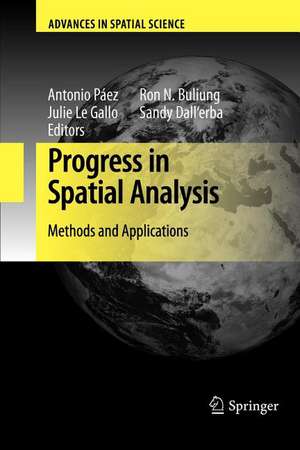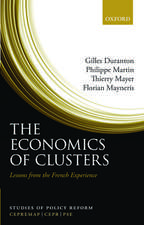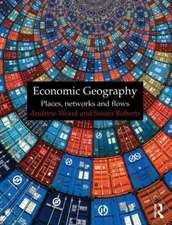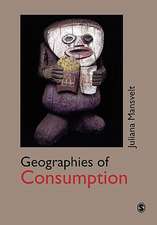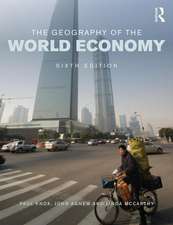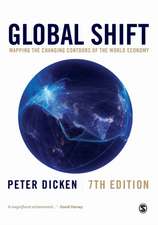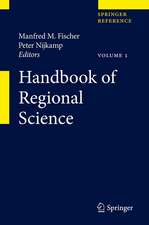Progress in Spatial Analysis: Methods and Applications: Advances in Spatial Science
Editat de Antonio Páez, Julie Gallo, Ron N. Buliung, Sandy Dall'erbaen Limba Engleză Paperback – 14 mar 2012
| Toate formatele și edițiile | Preț | Express |
|---|---|---|
| Paperback (1) | 955.08 lei 6-8 săpt. | |
| Springer Berlin, Heidelberg – 14 mar 2012 | 955.08 lei 6-8 săpt. | |
| Hardback (1) | 961.41 lei 6-8 săpt. | |
| Springer Berlin, Heidelberg – 19 noi 2009 | 961.41 lei 6-8 săpt. |
Din seria Advances in Spatial Science
-
 Preț: 368.91 lei
Preț: 368.91 lei - 18%
 Preț: 963.47 lei
Preț: 963.47 lei - 18%
 Preț: 948.16 lei
Preț: 948.16 lei - 18%
 Preț: 947.67 lei
Preț: 947.67 lei - 18%
 Preț: 940.72 lei
Preț: 940.72 lei - 18%
 Preț: 954.45 lei
Preț: 954.45 lei - 15%
 Preț: 646.62 lei
Preț: 646.62 lei - 18%
 Preț: 959.50 lei
Preț: 959.50 lei - 18%
 Preț: 956.33 lei
Preț: 956.33 lei - 18%
 Preț: 949.23 lei
Preț: 949.23 lei - 15%
 Preț: 646.75 lei
Preț: 646.75 lei - 15%
 Preț: 643.99 lei
Preț: 643.99 lei - 18%
 Preț: 955.40 lei
Preț: 955.40 lei - 15%
 Preț: 643.00 lei
Preț: 643.00 lei - 15%
 Preț: 644.49 lei
Preț: 644.49 lei - 18%
 Preț: 953.35 lei
Preț: 953.35 lei - 18%
 Preț: 956.03 lei
Preț: 956.03 lei - 15%
 Preț: 647.27 lei
Preț: 647.27 lei - 15%
 Preț: 638.24 lei
Preț: 638.24 lei - 18%
 Preț: 961.23 lei
Preț: 961.23 lei - 18%
 Preț: 954.93 lei
Preț: 954.93 lei - 15%
 Preț: 643.48 lei
Preț: 643.48 lei - 18%
 Preț: 955.70 lei
Preț: 955.70 lei - 15%
 Preț: 650.86 lei
Preț: 650.86 lei - 15%
 Preț: 650.04 lei
Preț: 650.04 lei - 15%
 Preț: 648.42 lei
Preț: 648.42 lei - 18%
 Preț: 949.42 lei
Preț: 949.42 lei - 18%
 Preț: 960.30 lei
Preț: 960.30 lei - 18%
 Preț: 948.29 lei
Preț: 948.29 lei - 18%
 Preț: 958.07 lei
Preț: 958.07 lei - 18%
 Preț: 950.66 lei
Preț: 950.66 lei - 18%
 Preț: 956.03 lei
Preț: 956.03 lei - 15%
 Preț: 643.65 lei
Preț: 643.65 lei - 18%
 Preț: 956.99 lei
Preț: 956.99 lei - 18%
 Preț: 956.81 lei
Preț: 956.81 lei - 18%
 Preț: 958.73 lei
Preț: 958.73 lei - 18%
 Preț: 959.98 lei
Preț: 959.98 lei - 18%
 Preț: 952.40 lei
Preț: 952.40 lei - 15%
 Preț: 643.00 lei
Preț: 643.00 lei
Preț: 955.08 lei
Preț vechi: 1164.73 lei
-18% Nou
Puncte Express: 1433
Preț estimativ în valută:
182.75€ • 190.81$ • 151.25£
182.75€ • 190.81$ • 151.25£
Carte tipărită la comandă
Livrare economică 05-19 aprilie
Preluare comenzi: 021 569.72.76
Specificații
ISBN-13: 9783642261497
ISBN-10: 3642261493
Pagini: 520
Ilustrații: XXVIII, 492 p. 104 illus.
Dimensiuni: 155 x 235 x 27 mm
Greutate: 0.72 kg
Ediția:2010
Editura: Springer Berlin, Heidelberg
Colecția Springer
Seria Advances in Spatial Science
Locul publicării:Berlin, Heidelberg, Germany
ISBN-10: 3642261493
Pagini: 520
Ilustrații: XXVIII, 492 p. 104 illus.
Dimensiuni: 155 x 235 x 27 mm
Greutate: 0.72 kg
Ediția:2010
Editura: Springer Berlin, Heidelberg
Colecția Springer
Seria Advances in Spatial Science
Locul publicării:Berlin, Heidelberg, Germany
Public țintă
ResearchCuprins
Theory and Methods.- Progress in Spatial Analysis: Introduction.- Omitted Variable Biases of OLS and Spatial Lag Models.- Topology, Dependency Tests and Estimation Bias in Network Autoregressive Models.- Endogeneity in a Spatial Context: Properties of Estimators.- Dealing with Spatiotemporal Heterogeneity: The Generalized BME Model.- Local Estimation of Spatial Autocorrelation Processes.- Spatial Analysis of Land Use and Transportation Systems.- “Seeing Is Believing”: Exploring Opportunities for the Visualization of Activity–Travel and Land Use Processes in Space–Time.- Pattern-Based Evaluation of Peri-Urban Development in Delaware County, Ohio, USA: Roads, Zoning and Spatial Externalities.- Demand for Open Space and Urban Sprawl: The Case of Knox County, Tennessee.- Multilevel Models of Commute Times for Men and Women.- Walkability as a Summary Measure in a Spatially Autoregressive Mode Choice Model: An Instrumental Variable Approach.- Economic and Political Geography.- Employment Density in Ile-de-France: Evidence from Local Regressions.- The Geographic Dimensions of Electoral Polarization in the 2004 U.S. Presidential Vote.- Gender Wage Differentials and the Spatial Concentration of High-Technology Industries.- Fiscal Policy and Interest Rates: The Role of Financial and Economic Integration.- Spatial Analysis of Population and Health Issues.- Spatial Models of Health Outcomes and Health Behaviors: The Role of Health Care Accessibility and Availability.- Immigrant Women, Preventive Health and Place in Canadian CMAs.- Is Growth in the Health Sector Correlated with Later-Life Migration?.- Regional Applications.- Evolution of the Influence of Geography on the Location of Production in Spain (1930–2005).- Comparative Spatial Dynamics of Regional Systems.- Growthand Spatial Dependence in Europe.
Textul de pe ultima copertă
Space is increasingly recognized as a legitimate factor that influences many processes and conceptual frameworks, including notions of spatial coherence and spatial heterogeneity that have been demonstrated to provide substance to both theory and explanation. The potential and relevance of spatial analysis is increasingly understood by an expanding sphere of cogent disciplines that have adopted the tools of spatial analysis. This book brings together major new developments in spatial analysis techniques, including spatial statistics, econometrics, and spatial visualization, and applications to fields such as regional studies, transportation and land use, political and economic geography, population and health. Establishing connections to existing and emerging lines of research, the book also serves as a survey of the field of spatial analysis and its links with related areas.
Caracteristici
Includes supplementary material: sn.pub/extras
